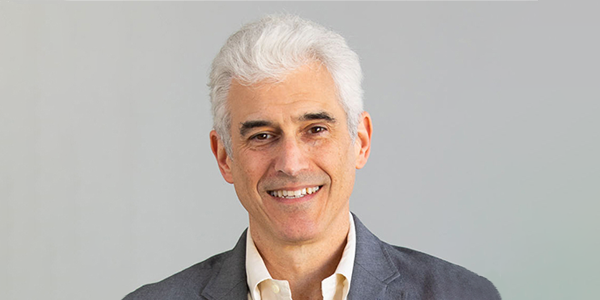Governance news bites – February 2025
A collection of governance-related news snapshots that you might have missed in the past two weeks.

This year’s Institute of Directors’ Leadership Conference is sure to pack a punch with 55 guest speakers over two days. International author and business strategist, Andrew Winston, will be among them.
Highly sought after, Winston advises many of the world’s leading companies on environmental strategy and has worked with many multinationals such as 3M, DuPont, J&J, Marriott, and PepsiCo. He has served on many sustainability advisory boards including for Kimberly-Clark, Hewlett-Packard, Trane Technologies, and Unilever.
In 2021, Winston made the ‘thinkers50 list’. Published bi-annually, it includes the top management thinkers in the world. A best-selling author, Winston is also a regular columnist for the Harvard Business Review and MIT Sloan Management Review.
So, what has led to his success? Where does he see ESG sitting on the board agenda in the U.S., and what is his take on balancing purpose and profit?
“Why should we think that purpose hurts profit? A company with real purpose will outperform one without,” says Winston, adding that while that is a simplified statement it covers a lot of ground and nuance.
Winston says the best companies in history have always had a clear focus, keeping what he refers to as, “Good to Great” as the core, allowing a business to change tactics over time.
Passionate about sustainability and business, he says, if purpose also includes ‘sustainability’ then the latter pays because it is good for long term value.
“There are important investments to make, so it's not cash-free to decarbonize or fix human rights issues, but nothing in business comes for free – everything is an investment choice,” he says.
In New Zealand many directors and boards are grappling with what ESG means and how it factors into their businesses. Over in the States, there is strong sentiment and debate around it, which has created tension and ESG has become highly politicised, according to Winston who says it continues to be a “complicated topic where there are at least two or more different versions of what could be defined as anti-ESG”.
Much of the pushback relates to how businesses and organisations define what it means to them, and Winston says that the sustainability advocates who criticize ESG are essentially “pushing back on the very real confusion between ESG and sustainability”.
“These are the advocates who want to see sustainability be a business priority but think that ESG is being used by financial companies to overpromise, or even greenwash,” says Winston.
For the most part, he says the way investors and boards use ESG in finance, is as ‘a screen’ on how a company is impacted by big environmental and social issues. For instance, the material risks to the business, which comes with a layer of concern over how these issues are governed.

Andrew Winston
But he argues, sustainability is a broader term that looks at a company's role in society - how the company affects the environment and people.
He says this is what matters because the other, ‘louder’ anti-ESG movement is pushing back on a much larger concept of building a ‘just’ and ‘environmentally sound’ world.
“In the U.S. it's mostly a far right political rallying cry to say that ESG is progressive or "woke". As one exec at fund giant Morningstar put it: “Anti-ESG [is] a proxy for opposition to the spread of ‘liberal values’ in civil society.”
He adds that the movement has become politicised and purposefully wrapped up in many battles over equality, race, LGBTQ rights, and more.
When asked what it might take to change this way of thinking, Winston isn’t sure whether it’s possible at all, especially with the issue being so intertwined with politics.
“Once it's part of a political game of ‘look how much I can anger my opponents’ and a way to rally your political base, it's hard to go back,” he says.
In spite of that, he doesn’t believe that it would change the trajectory of sustainability in business.
“Yes, some companies are more careful about talking about their sustainability efforts to avoid being a 'target', but the work is continuing for the most part because the forces driving sustainability are real, here, and growing,” Winston says.
Climate change, he says, is not a model to debate, but a very real problem, which costs ‘real’ money to businesses in their operations and supply chains. Companies are also demanding more of each other and that transparency is driven by businesses asking their suppliers for more information on sustainability issues.
“We're also seeing a huge generational change in expectations of businesses, including Millennials and Gen Zer’s who have a different world view on values in business and expect more,” he says.
Winston adds that many of the solutions around climate change are much cheaper now including renewable energy, batteries for vehicles, and because of this it’s becoming more expensive for companies to do nothing.
So what should you do if you’re struggling to come to terms with ESG for your business or through a governance lens?
Winston believes that making a tangible change means understanding that climate change is “a true existential threat to humanity”.
“It’s becoming radically expensive to our economy and our businesses, and it's not a political issue -- it's a scientific one with political ramifications on how we act, but not an issue of political party.”
For Winston, that big-picture thinking and having a desire to create change also comes with more personal roots - wanting a better world for his family. But ultimately that also benefits everyone else, and the planet.
“We are all deeply connected,” he says.
As for his personal success and what it’s taken for him to achieve as much as he has, Winston comes back to the importance of sharing knowledge.
“If I've had success in my business, it comes from being a good translator between the business and sustainability worlds. And I think I've been honest and blunt about what we're facing, while remaining positive about what's possible for humanity and business if we put our minds to it and work together,” says Winston.